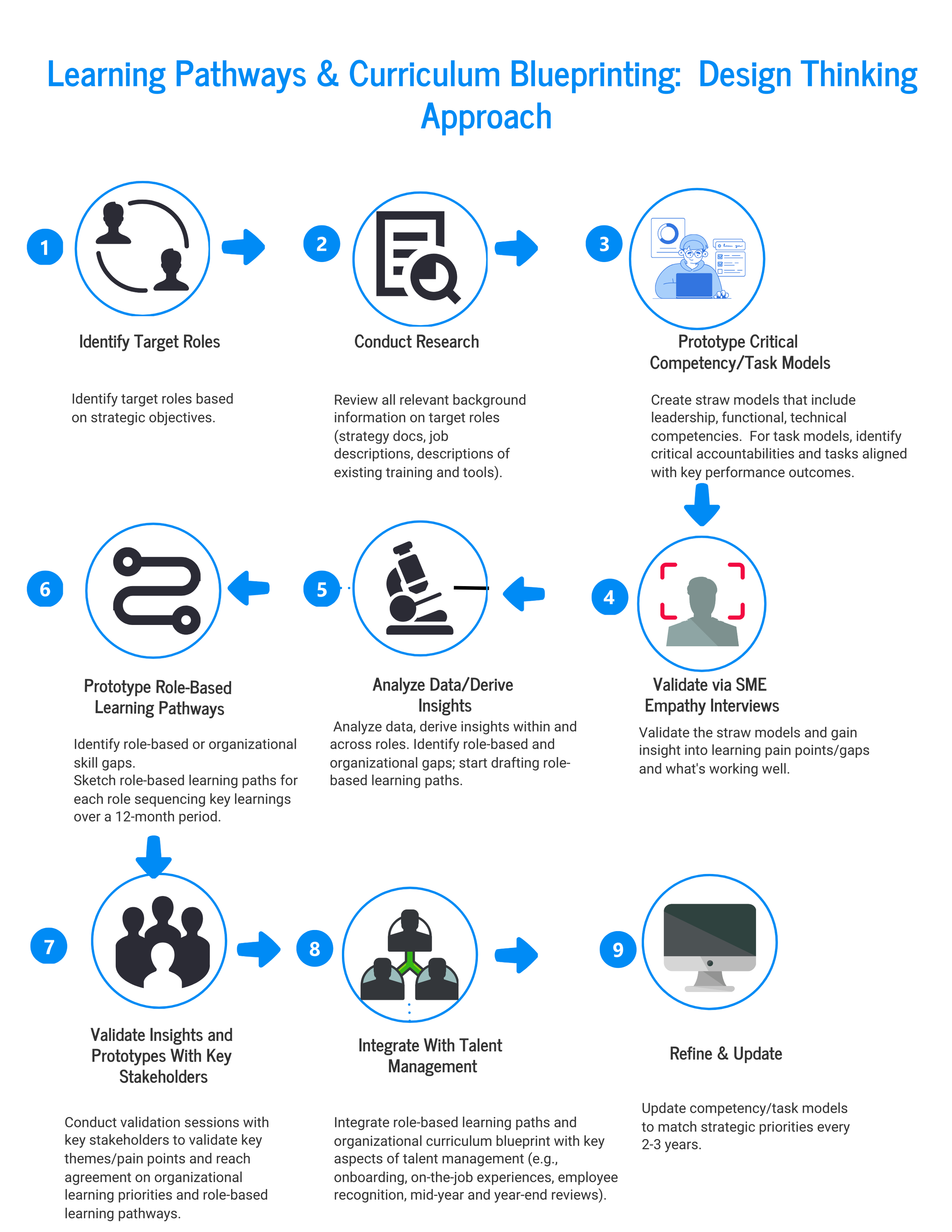Curriculum Blueprint
Purpose
A Curriculum Blueprint is a long-term training plan which ensures that training priorities are driven by business objectives.
Benefits
Build training and development solutions based on business requirements.
Ensure alignment between competencies/identified needs and training/development solutions.
Align priorities in terms of course sequencing.
Get buy-in of key corporate stakeholders for the long-term direction of training initiatives.
Case Study
When a top tier pharmaceutical company had to rapidly grow its sales, solutions engineering and implementation teams to meet escalating customer demand, we developed role-based leadership and management development learning paths and an overarching curriculum blueprint. By applying design thinking principles of rapid prototyping of role-based task models, iterative analysis/validation via SME/stakeholder “empathy interviews” we identified organizational and role-based skill gaps. For each priority gap, the blueprint addressed: (a) business impact, (b) high level learning objectives, (c) course level, (d) timing, (e) target audience, (f) existing training that can be leveraged, and (d) delivery options.
Process
Conduct relevant secondary research (such as business market research, and review of senior management goals).
Review existing training courses (e.g., content and collateral materials).
Conduct interviews with senior management and members of the target population as needed to understand strategic direction and business context of training needs.
Interview members of training staff to learn about currently available training and development resources.
Compare competency model content/needs analysis data to current training program offerings to create a matrix that identifies:
Courses that are on-target
Courses that are needed but not delivered effectively
Gaps in the current curriculum based on identified competencies
Elimination of courses that don't meet an identified need
Conduct benchmark of key competitors or exemplary organizations' curriculum, as needed, to provide benchmark data and models
Redesign the existing curriculum based on client approval, which includes:
A matrix identifying all courses and their relationship to needed competencies
Identification of learning tracks and course sequencing
Course descriptions that cross-reference related study areas
Recommendations for addressing training gaps, including course objectives, delivery methods (such as classroom, e-learning, job aids, etc.) and content overviews










